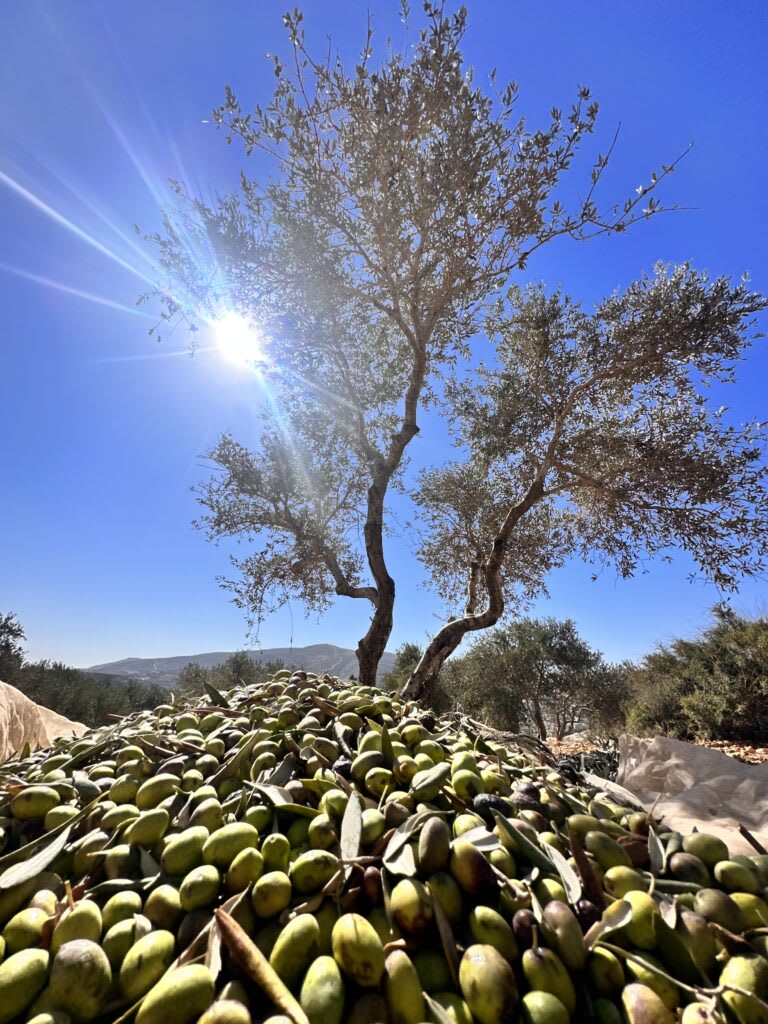
This year’s olive harvest in Palestine has been one of the most difficult in memory. Across the West Bank, farmers have faced violence, intimidation, and the constant fear of attack.
Armed settlers have blocked access to groves, set fire to trees, and vandalised property. Some have assaulted farmers or threatened them with guns and batons. In some areas, olive trees have been bulldozed or uprooted by the Israeli army. Harvesting, for many, has become an act of defiance.
Families have had to make an unthinkable choice – to stay away from their groves and let the olives fall, rather than risk their lives and that of their families.
The loss runs deeper than a single season’s income. When olives are left to fall, the damage carries into the next year. The fallen fruit attracts pests such as the olive fruit fly and creates a breeding ground for fungal disease. The tree also continues to feed the ripened olives, diverting nutrients that would otherwise help new buds form. Over time, this weakens growth and reduces the following year’s yield – something farmers have long understood. Agricultural science now affirms what farmers have learned and passed on over the centuries: neglecting the harvest endangers the tree’s health and the land’s fertility.
For generations, the olive harvest has been a labour of love as much as necessity. Each olive picked, by hand or with care, renews the bond between farmer and land.
Farmers often refer to their trees as their children – living beings to be protected, fed, and handed on.
We treat the olive tree as if it were one of our own children. It’s our duty to protect it as we do our children – Mohammad Weshahi, Talfit
It is how families have sustained themselves, tended their soil, and kept their heritage alive for generations upon generations.
But love alone cannot sustain farming. When Zaytoun began 21 years ago, Palestinian farmers had very few options, often forced to sell their olives below the cost of production. However deep their attachment to their groves, they could not live from them. Many turned to other work – as drivers, labourers, anything that paid. The risk of having to abandon farming altogether was real, and it wasn’t only economic; it was cultural and ecological too.
Fair prices and reliable markets have changed that equation. They’ve helped make farming viable again. When growers can earn a dignified livelihood from their olives, they tend their trees, prune, press, and preserve. They pass on skills to their children, ensuring that this landscape – and all it represents – endures.
That is the heart of our mission: to keep olive farming alive and to make sure no farmer has to choose between safety, survival, and the land they love.
Every harvest, with all its joys and trials, reminds us why we started Zaytoun and why our shared commitment still matters.



